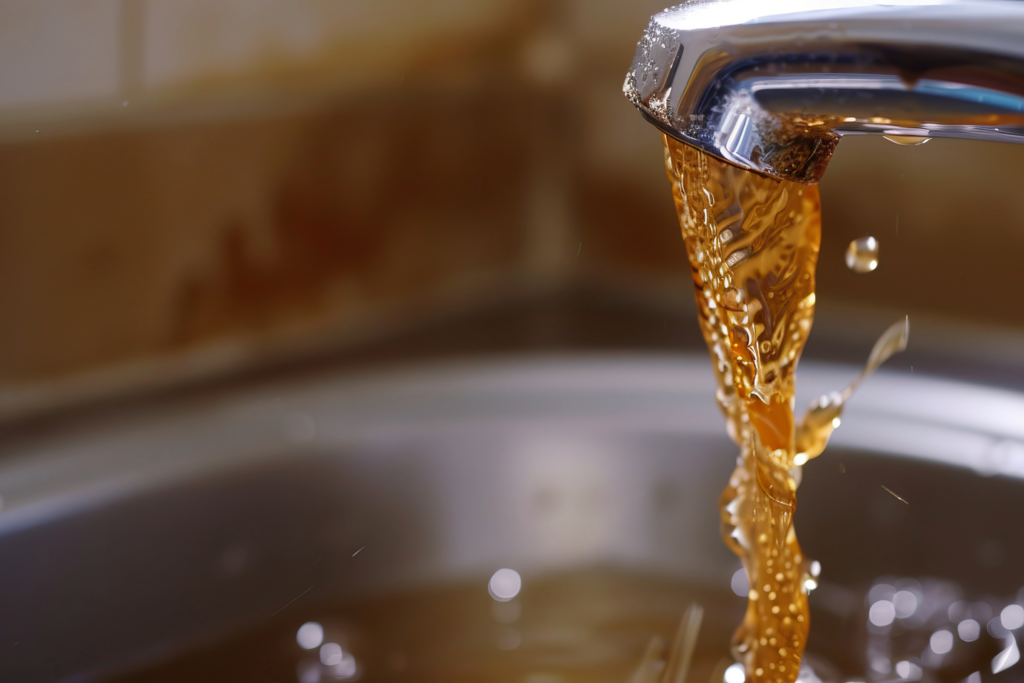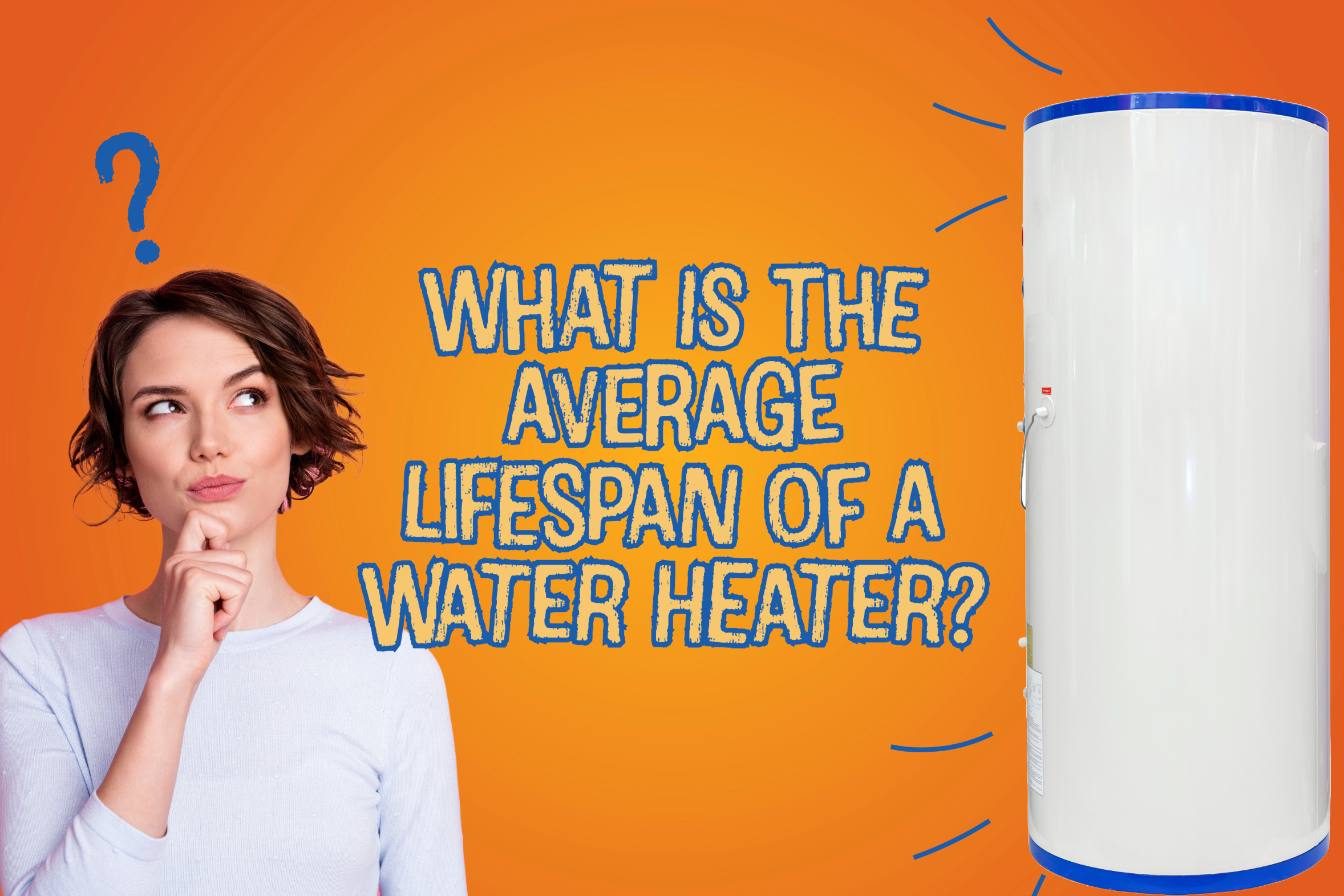If you’re dealing with water heater issues and have some questions, you’re in the right spot! As your go-to plumbing company, we get how overwhelming this can be – especially if it’s your first time. What should you ask? Why does it need replacing? How do you decide between replacing and repairing? These are all great questions! But if you’ve never had to ask them before, you might not know where to start. That’s where Columbus Plumbing & Drain comes in!
We’re here to help make everything home-related as easy and stress-free as possible. So, let’s kick off with the basics. One of the most common questions we get is: How long should a water heater last?
How Long Does a Water Heater Usually Last?
A good rule of thumb is 8 years. However, some water heaters can last a bit longer, usually between 8 and 10 years. If your water heater hits the 10-year mark, it’s probably nearing the end of its lifespan. Planning ahead is crucial to avoid any surprises. After all, no one likes being caught off guard.
How Do You Know What Factors Affect the Lifespan of a Water Heater?
It’s important to know that a few factors can and will affect how long your water heater lasts. These factors include:
- Usage – How much water you use plays a big role in your water heater’s lifespan. Should you cut back just to make it last longer? Definitely not! But it’s still something to keep in mind.
- Maintenance – Proper care is key. If you skip annual checkups and those essential water heater flushes, your heater will wear out faster.
- Water Quality – The quality of your water matters. Hard or soft water, filled with minerals like calcium and magnesium, can lead to buildup that affects your water heater’s lifespan and efficiency.
- Installation Quality – A poorly installed water heater can wear out faster, cause damage, or even be a safety hazard for your home and family.
- Equipment Quality – Choosing cheaper, lower-quality equipment for such a heavily used appliance means it likely won’t last as long. The materials in the water heater’s tank and heating elements greatly impact its performance and lifespan.
How Do You Know the Signs That You May Need to Replace Your Water Heater?

- The Water Is Rusty – If the water coming from your faucets looks discolored or “rusty,” it’s a clear sign your water heater might be nearing the end of its life. Similarly, if the water has a metallic smell or taste, it’s time to start considering your replacement options.
- The Water Is Not Getting Hot – If you’ve noticed your water heater struggling to keep up with your household’s hot water needs lately, this could be due to sediment buildup or wear and tear. In that case, a replacement might be necessary.
- The Water Is Leaking or Pooling Around the Base of the Unit – When a water heater leaks, you’ll often see water pooling around its base. It’s important to get a professional to check it out ASAP; depending on the issue, you might need a replacement.
- The Water Heater Is More Than 10 Years Old – As mentioned earlier, the age of a water heater is a big factor in deciding whether to replace it. If your unit is over 10 years old, a replacement might be your best bet.
- The Water Heater Requires Frequent Repairs – While repairs can sometimes fix specific issues, needing multiple repairs isn’t a good sign. Constantly fixing your water heater might end up costing you more than investing in a new, energy-efficient model.
How Do You Know What Type of Maintenance You Can Do to Prolong Your Water Heater’s Lifespan?
Since water heating accounts for about 18% of a household’s energy expenses, it’s safe to say you want your water heater running smoothly and efficiently. Regular maintenance is key to keeping it in top shape and extending its lifespan. Here are some recommended water heater maintenance tips:
- Flushing Your Water Heater – Letting sediment build up can cause your system to overheat and lead to other issues. This can shorten your unit’s lifespan and result in costly repairs.
- Avoiding High Water Temperatures – Setting your water heater to excessively high temperatures can wear it down faster, reducing its lifespan.
- Preventing Rust Buildup on the Exterior – Rust on the exterior of a unit can lower its efficiency and cut short its life expectancy.
- Keeping Up with Your Annual Maintenance – Don’t skip your annual plumbing inspections even if it seems like you don’t need it. Staying up to date with your residential plumbing inspection ensures everything is running smoothly. A licensed plumber can check over your home, catch minor problems early, and help prevent them from turning into major plumbing disasters.

Keeping track of your water heater’s age is useful because it helps you plan ahead and make informed decisions as they come up. Not sure how old your water heater is? Or maybe you want a free estimate for a new water heater? Whatever you need assistance or have any questions, we’re here to help!
You can count on Columbus Plumbing & Drain for all your plumbing needs! Call us today at (614) 879-3783 or schedule an appointment online now by clicking here!






